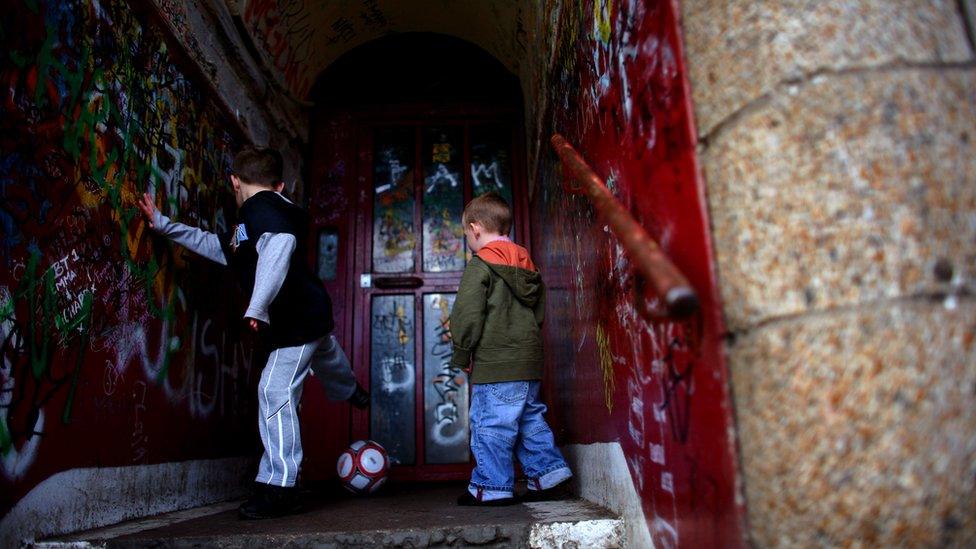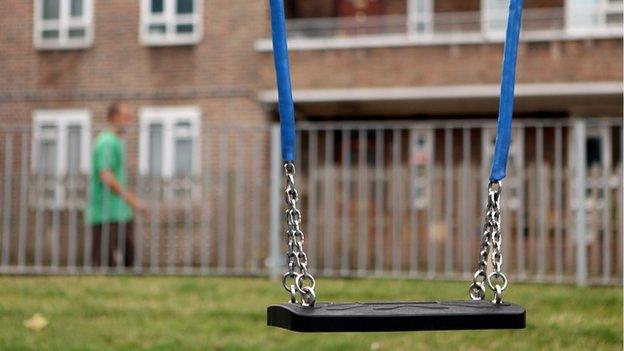MSPs set targets for reduction of child poverty by 2030
- Published

MSPs have passed a bill containing a series of new targets for the reduction of child poverty in Scotland.
The Child Poverty (Scotland) Bill, external sets out four statutory goals which the government is expected to hit by 2030.
It was brought forward in response to the repeal of sections of the UK Child Poverty Act, to reinstate the use of a set of income-based targets.
Equalities Secretary Angela Constance called the bill a "historic milestone" in the fight against poverty.
After a series of amendments were agreed, MSPs unanimously agreed to pass the bill, with the vote finishing 115 to nil.
Ms Constance told MSPs that in 2015-16, one in four children in Scotland was living in relative poverty after housing costs.
She said the bill was the "crucial next step" in the fight against child poverty, and added: "The fact this bill has cross party support is an achievement we all share."
The legislation means that in the financial year starting in April 2030, the government has a statutory obligation to have have achieved:
Less than 10% of children living in households that are in relative poverty - currently 22%
Less than 5% of children living in households that are in absolute poverty - currently 21%
Less than 5% of children living in households that combine low income and material deprivation - currently 12%
Less than 5% of children living in households that are persistent poverty
The bill also sets out reporting mechanisms for progress towards the targets, with delivery plans to be published in April 2018, 2021 and 2026.
It places duties on the government, local authorities and health boards to report annually on what they are doing to reduce child poverty, and provides for the establishment of a Poverty and Inequality Commission.
- Published10 February 2017
